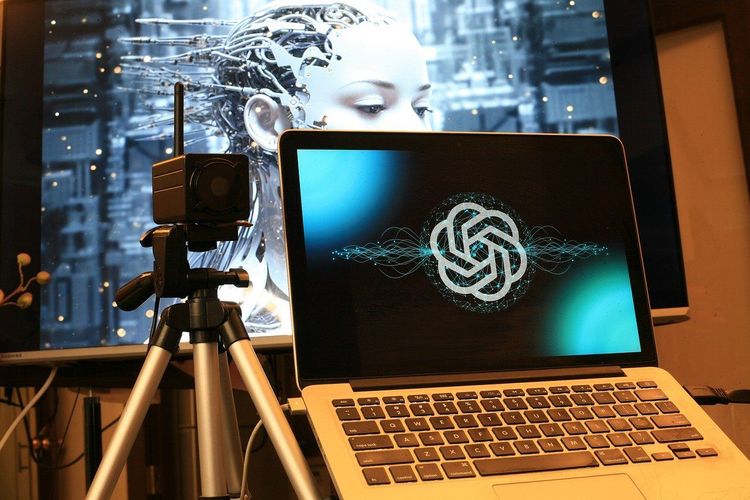SiMa.ai, a Silicon Valley startup specializing in embedded machine learning (ML) system-on-chip (SoC) platforms, has announced a successful $70 million extension funding round to support the launch of its second-generation chipset, designed specifically for multimodal generative AI processing.
According to Gartner, the global market for AI chips is expected to more than double by 2027, reaching $119.4 billion compared to 2023 figures. While a few companies are producing dedicated semiconductors for AI, most leading players initially concentrated on cloud-based AI solutions. Emerging reports indicate significant growth potential in edge AI, which involves processing AI computations closer to data sources rather than relying solely on centralized cloud services. SiMa.ai, inspired by the Hindi word "seema," meaning "boundary," aims to capitalize on this trend by providing its edge AI SoCs to various sectors, including industrial manufacturing, retail, aerospace, defense, agriculture, and healthcare.
Headquartered in San Jose, SiMa.ai targets energy consumption between 5W and 25W. The company launched its first ML SoC to facilitate AI and ML implementation through an optimized combination of proprietary chipsets and a no-code software platform called Palette. This innovative solution has been deployed by over 50 companies worldwide, as shared by founder and CEO Krishna Rangasayee.
SiMa.ai’s current generation ML SoC has achieved remarkable FPS/W performance on the MLPerf benchmark across closed, edge, and power division categories. However, the initial chipset primarily focused on traditional computer vision tasks. With the growing demand for Generative AI (GenAI), SiMa.ai plans to unveil its second-generation ML SoC in early 2025, specifically engineered for multimodal GenAI functionality. Rangasayee noted that while the new SoC will undergo “a few architectural tunings,” the core concepts will largely remain consistent with its predecessor.
The upcoming GenAI SoC is designed to be compatible with various frameworks, networks, models, and sensors, mirroring the company's existing ML platform. This innovative solution will cater to multiple modalities, including audio, speech, text, and image processing, serving as a unified platform for all AI applications, from computer vision to transformers and multimodal GenAI.
"You can't predict the future, but you can choose a direction. That's the philosophy we've embraced architecturally," said Rangasayee. He emphasized that despite the evolution, the fundamental architecture remains intact, benefiting from a software-centric model that allows for flexibility and agility.
SiMa.ai collaborates with TSMC in Taiwan for manufacturing its first- and second-generation AI chipsets, while Arm Holdings provides the compute subsystem. The next-generation chipset will utilize TSMC’s advanced 6nm process technology and include Synopsys EV74 embedded vision processors for enhanced pre- and post-processing in computer vision applications.
In the competitive landscape, SiMa.ai identifies prominent players such as NXP, Texas Instruments, STMicro, Renaissance, Microchip Technology, and Nvidia, alongside AI chip startups like Hailo. Rangasayee considers Nvidia the main competitor, particularly noting its cloud dominance but lack of focus on edge solutions. He critiques Nvidia for insufficient power efficiency and edge AI software, asserting that many rivals fail to address systemic challenges, instead offering mere ML acceleration.
"Among our peers, Hailo has excelled. It's not about being better; our value proposition simply differs," he noted. Rangasayee claims SiMa.ai offers superior performance and energy efficiency over Hailo, highlighting the effectiveness of its system software for GenAI applications.
"Our success hinges on resolving customer challenges more effectively than anyone else," he added, reinforcing the startup's dedication to innovation.
The recent funding round, led by Maverick Capital and supported by Point72 and Jericho, builds on SiMa.ai’s previously announced $30 million Series B round from May 2022. Existing supporters, including Amplify Partners and Dell Technologies Capital, also contributed. With this funding, SiMa.ai has now raised a total of $270 million since its inception five years ago.
Currently employing 160 people, with 65 dedicated to its R&D center in Bengaluru, India, SiMa.ai plans to increase its workforce and enhance its R&D capabilities. The startup seeks to establish a go-to-market team for Indian customers and aims to expand its customer-facing teams globally, with a focus on Korea, Japan, Europe, and the U.S.
"The rise of generative AI is transforming data center architectures. As we witness this revolution, edge computing is poised for a remarkable transformation as well. SiMa.ai possesses a powerful combination of expertise, cutting-edge technology, and momentum, positioning it as a pivotal player in this evolution. We are thrilled to partner with SiMa.ai to seize this once-in-a-lifetime opportunity," stated Andrew Homan, senior managing director at Maverick Capital.







